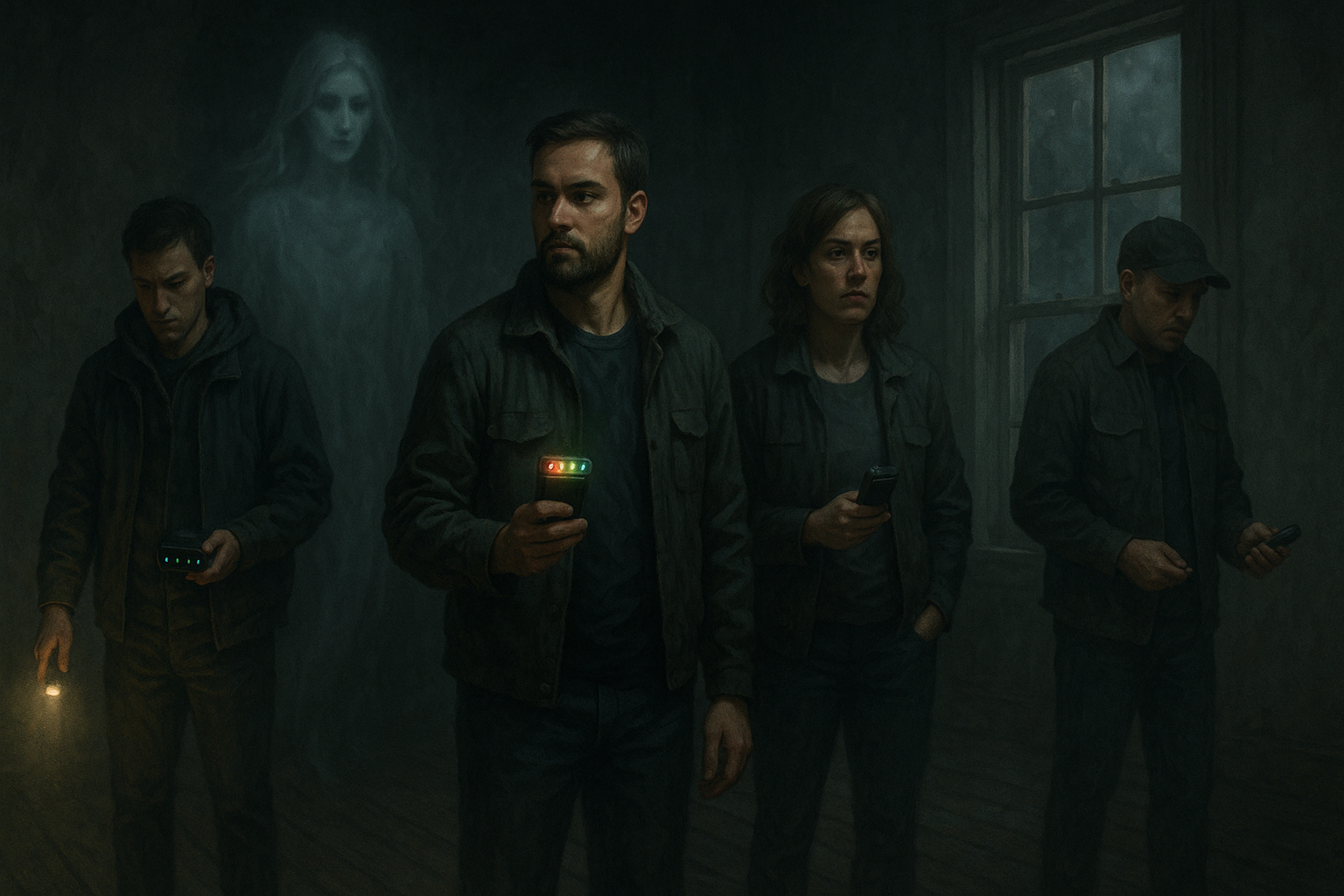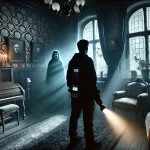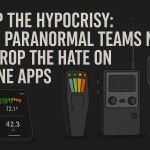If you’ve spent any time in the paranormal field, you’ll know the debate well: one team goes to a famously haunted location and captures amazing evidence, while another group goes a week later and gets absolutely nothing. Some people take this as proof that “it’s all fake.” But that’s far too simplistic. The reality is more complex — and, frankly, far more interesting.
Paranormal Activity Isn’t a Stage Show
The first mistake many people make is expecting ghosts to “perform on command.” Spirits, if they are conscious entities, have free will. They don’t exist to put on a show for whoever happens to walk through the door. You can have the most expensive equipment, the best cameras, and a fully-charged spirit box, and still get silence if the energy just isn’t there.
This is why one team might get an incredible EVP or see an object move, while the next group hears nothing but their own footsteps. Paranormal activity doesn’t punch a timecard. It happens when it happens.
Timing Really Does Matter
There are countless theories about why paranormal activity spikes at certain times:
- Environmental factors like changes in weather, atmospheric pressure, or geomagnetic activity.
- Time of night, with the so-called “witching hour” around 3 AM being the most infamous.
- Anniversaries or dates tied to traumatic events.
In other words, if one team happened to walk in during a “hot” moment and another arrived during a “quiet” one, the results will naturally differ. That doesn’t make either experience invalid.
The Investigator Effect
Here’s where things get controversial. The truth is, the investigator themselves may be the biggest variable of all.
- Some people are naturally more sensitive, and their energy can stir things up.
- Spirits may prefer one person’s respectful approach over another’s aggressive style.
- Sometimes, an investigator’s very presence — their intent, their openness — acts like a beacon for paranormal interaction.
Put bluntly: spirits don’t respond equally to everyone. Just like in life, some personalities clash, and some connect.
The Equipment Myth
Too many teams lean on their gear as if devices guarantee results. Don’t get me wrong — I love equipment, and it plays a big role in documenting activity. But you can’t rely on a K2 meter or a phone app to conjure evidence out of thin air.
One team may capture amazing data because they happened to be in sync with the moment, while another sees nothing light up at all. That doesn’t mean the location isn’t haunted — it just means the conditions weren’t right. Paranormal investigation is not about pressing a button and getting ghosts on demand.
The Hard Truth
Here’s the truth some won’t like: just because you didn’t get evidence doesn’t mean the place isn’t haunted, and it doesn’t mean the team who did get evidence is lying. Likewise, just because you did capture something doesn’t make you special or “chosen.” It simply means the timing, environment, and energy all aligned for you.
What frustrates me is when skeptics (or worse, rival investigators) dismiss other people’s findings because they personally didn’t get the same results. That attitude shows a fundamental misunderstanding of how unpredictable and situational paranormal activity really is.
A Word to the Skeptics
Skeptics often fall back on the argument: “If I didn’t get evidence, then the location can’t be haunted.” That logic is deeply flawed. Imagine fishing in a lake. One angler might catch a fish on their first cast, while another spends hours without a single bite. Does that mean there are no fish in the lake? Of course not.
Paranormal investigation works the same way. Just because you didn’t experience it doesn’t mean it didn’t happen. And dismissing the experiences of others simply because they don’t match your own isn’t critical thinking — it’s arrogance.
Healthy skepticism is important, but there’s a fine line between being skeptical and being closed-minded. In the paranormal field, closed minds see nothing because they’re unwilling to accept that “nothing” isn’t always the truth.
Final Thoughts
The paranormal isn’t a science experiment where every test produces identical outcomes. It’s messy, inconsistent, and sometimes infuriating. But that’s also what makes it so fascinating.
If spirits truly are conscious beings, then whether they choose to interact depends on them — not on our equipment, not on our schedules, and not on our egos.
So the next time you hear about one team getting amazing evidence while another leaves empty-handed, don’t jump to conclusions. Instead, remember this: ghosts don’t keep office hours, and they certainly don’t owe us an explanation.
Why Paranormal Evidence Might Elude Non-Believers
When skeptics or non-believers visit haunted locations, they often do so with the mindset that ... Read more
Stop the Hypocrisy: Why Paranormal Teams Need to Drop the Hate on Paranormal Phone Apps
Let’s be blunt: one of the biggest double standards in the paranormal field is how ... Read more


